Ibm BladeCenter HS22 7870H2Y Handleiding
Bekijk gratis de handleiding van Ibm BladeCenter HS22 7870H2Y (18 pagina’s), behorend tot de categorie Server. Deze gids werd als nuttig beoordeeld door 34 mensen en kreeg gemiddeld 4.6 sterren uit 17.5 reviews. Heb je een vraag over Ibm BladeCenter HS22 7870H2Y of wil je andere gebruikers van dit product iets vragen? Stel een vraag
Pagina 1/18

Versatile, easy-to-use blade optimized for performance, power and cooling
Please see the Legal Information section for important notices and information. 1.
Product Guide
March 2010
IBM BladeCenter HS22
Product Overview
CONTENTS
Product Overview 1
Selling Features 2
Key Features 5
Key Options 12
HS22 Images 13
HS22 Specifications 14
The Bottom Line 16
Server Comparison 17
For More Information 18
Legal Information 18
No compromise, truly balanced, 2-socket blade server
for infrastructure, virtualization and enterprise business
applications
Suggested uses: Front-end and mid-tier applications requiring high performance, enterprise-
class availability and extreme flexibility and power efficiency.
Today’s data center environment is tougher than ever. You are looking to reduce IT cost,
complexity, space requirements, power consumption and heat output, while increasing flexibility,
utilization and manageability. Incorporating IBM X-Architecture™ features, the IBM®
BladeCenter® HS22 blade server, combined with the various BladeCenter chassis, can help
you accomplish all of these goals.
Reducing an entire server into as little as .5U of rack space (i.e., up to 14 servers in 7U) does
not mean trading away features and capabilities for smaller size. Each HS22 blade server offers
features comparable to many 1U rack-optimized full-featured servers: The HS22 supports up to
two of the latest high-performance or low-voltage , , and 6-core 4-core 2-core Intel® Xeon® 5500
series and 5600 series processors.. The Xeon processors are designed with up to of 12MB
shared cache and leading-edge memory performance (up to 1333MHz, depending on processor
model) to help provide the computing power you require to match your business needs and
growth The HS22 supports up to .96GB of registered DDR-3 ECC double data rate III ( ) (Error
Checking and Correcting) memory in DIMM slots, with optional 12 Chipkill™ protection1, for high
performance and reliability. Selected models are planned for NEBS-3/ETSI-compliance.
The HS22 offers an option for VMware ESXi preloaded on a standard USB flash drive. It
operates in a diskless configuration, offers a smaller memory footprint, extremely high
performance, and stronger security, making getting a system up and running in a virtualized
environment faster and easier than ever before.
An integrated dual-port Gigabit Ethernet 2 controller is standard, providing high-speed data
transfers and offering (TCP Offload Engine) support, TOE load-balancing failover and
capabilities. Via optional expansion cards, each blade can also connect to additional Ethernet,
SAS Fibre Channel iSCSI, InfiniBand, , ™,
and other high-speed communication switches
housed in the chassis. Optional and2-port 4-port Expansion Cards add additional fabrics to
the HS22 server as needed. This blade is designed with power management capability to
provide the maximum uptime possible for your systems. In extended thermal conditions or
power brownouts, rather than shut down completely, or fail, the HS22 automatically reduces the
processor frequency to maintain acceptable thermal and power levels.
All HS22 models offer impressive features at an equally impressive price, including up to two
hot-swap SAS or SATA hard disk drives two hot-swap solid-state drives or with RAID-
0/1/1E support, and one USB-based internal flash drive (for embedded hypervisor]. Additional
storage is available via the BladeCenter S chassis. Moreover, the HS22 is optimized for
diskless operation, offering each blade server access to essentially unlimited external storage
capacity via Fibre Channel, SAS, or iSCSI.
A single BladeCenter E BladeCenter H or chassis supports up to 30mm-14 hot-swappable
wide HS22 blades in only (BladeCenter E) or (BladeCenter H) of rack space or up to 7U 9U 12
in the 12U BladeCenter HT high-speed telecommunications chassis. In addition to the blade
servers, these chassis also hold up to 4 switches (BladeCenter E) or up to 10 (BladeCenter H)
or 8 switches/bridges (BladeCenter HT) internally. The BladeCenter S, designed for SMB and
mid-market customers, takes integration and affordability to a new level, combining up to hot-12
swap SAS/SATA HDDs (with optional SAS card) and up to 6 blade servers 4 switches and .
Not only can this save significant data center space (and therefore the cost of floor space and
1 Chipkill protection on the HS22 requires x4 DIMMs; Chipkill protection is not available with x8 DIMMs.
2 Actual data transfer speed will vary and is often less than the maximum possible. Gigabit Ethernet transfer speed requires support on both
system and server, and appropriate network infrastructure.

Versatile, easy-to-use blade optimized for performance, power and cooling
Please see the Legal Information section for important notices and information. 2.
rack hardware) compared to 1U servers, it also consolidates switches/bridges and cables for
reduced complexity and lower cabling costs, and it allows clients to manage everything in the
solution as one. Using a BladeCenter E chassis, up to HS22 servers ( processors) can be 84 168
installed in one industry-standard 42U rack; but the value of BladeCenter extends far beyond
high density data center environments.
The various BladeCenter chassis are designed to monitor environmental conditions in the
chassis and each blade and send alerts to the administrator Advanced standard features, such .
as Active Memory™, Predictive Failure Analysis™, light path diagnostics hot-swap ,
redundant hard disk drives power supplies and blower modules Calibrated Vectored , with
Cooling™; support, includingIPMI 2.0 highly secure remote power control text-console ;
redirect over LAN, next-generation BIOS ( ), an UEFI Advanced Management Module
(upgradeable with a redundant AMM), IBM Systems Director management software including
IBM Systems Director Active Energy Manager™ for x86 Remote Deployment Manager. ,
and IBM ServerGuide™ help maintain system availability with increased uptime.
If you need highly manageable, high-performance computing power in a space- or power-
constrained environment, the HS22 is the ideal system.
Selling Features Price/Performance
• There is an HS22 model to fit all budgets. The HS22 offers a choice of high-performance 6-core/4-
core/2-core Xeon processors with integrated memory controllers, clock rates from 2.00GHz to
3.06GHz, and up to 12MB of shared cache (processor-specific) of integrated L3 cache. Xeon 5600
Series processors offer up to 60% better performance3 than the previous-generation 5500 Series
processors and up to 1500% better performance than the single-core processors of a few years ago
that you may still be using.
• Low-voltage processors draw less energy and produce less waste heat than higher-voltage
processors, thus helping to reduce data center energy costs. On a per-core basis, the standard
80W processors are extremely economical, consuming as little as 20W per core. Some low-voltage
Xeon processors consume only 60W (15W per core).
• Up to 96GB of registered DDR-3 ECC memory operates at 800MHz to 1333MHz (depending on
the system configuration), for high performance and wide memory bandwidth.
• Run two DIMMs per memory channel at 1333MHz in 5600 Series processor configurations
• Embedded virtualization (optional on all models) offers extremely high performance, enhanced
security, and a zero-gigabyte HDD footprint. (In other words, no mechanical HDD to fail.)
• Optional solid-state drives (SDDs) use only 2W of energy per drive, vs. 9-10W for 2.5-inch HDDs.
This is as much as 80% less energy than a HDD would use (with a corresponding reduction in heat
output).
• Low power 1.35V memory draws up to 15% less power than current shipping memory DIMMs.
• Selected HS22 blade servers are planned for NEBS3/ETSI-compliance and feature long-life
availability. These blades are ideal for telecom or Next Generation Network (NGN) applications
such as IPTV, IP Multimedia Subsystem (IMS) and security.
• The extremely high degree of integration in the various BladeCenter chassis reduces the need
for server components, replacing numerous fans, KVM and Ethernet cables, power supplies,
external switches and other components with fewer shared hot-swap/redundant components in the
BladeCenter chassis itself. This integration also can greatly reduce the amount of power
consumed and heat produced, relative to an equivalent number of 1U servers. This can
significantly reduce a data center power bill. The reduced datacenter footprint can also save on
infrastructure cost.
• The midplanes used in all chassis provide high-speed blade-to-blade, blade-to-switch-module
and module-to-module communications internally as well as externally. The midplanes used in
the BladeCenter H and BladeCenter HT chassis provide four 10Gb data channels to each blade,
and supports high-speed switch modules, including 4X InfiniBand and 10Gb Ethernet.
• The various BladeCenter chassis use ultrahigh efficiency power supplies. Most industry-
standard servers use power supplies that are between 70-75% efficient at converting power from
AC wall current to the DC power used inside servers. BladeCenter power modules are up to 92%
efficient. This helps save even more money, as more of the power input you are paying for is used
for processing, rather than released into the data center as waste heat that requires even more
energy to cool.
• BladeCenter also reduces the number of parts required to run the system. Sharing fans, systems
management, floppy devices and media means fewer parts to buy and maintain, and fewer items
that can fail and bring the overall solution down.
3 Based on Intel measurements.

Versatile, easy-to-use blade optimized for performance, power and cooling
Please see the Legal Information section for important notices and information. 3.
Flexibility
The has the ability to grow with your application requirements, thanks to: HS22
• Up to two multi-core Xeon processors (four, eight or twelve cores in all).
• A choice of processor speeds from 2.00 to 3.06GHz, up to 12MB of shared cache, and a choice of
power draw from 40W to 95W.
• A choice of memory speeds from 800MHz to 1333MHz.
• Up to 96GB of system memory in 12 DIMM slots.
• Two internal hot-swap 2.5-inch SAS or SATA HDDs or solid state drives, and access to terabytes
of external IBM System Storage™ SAN and NAS storage devices. 2.5-inch drives consume
approximately half the power of 3.5-inch drives.
• Two Gigabit Ethernet ports standard; plus more, using either a 2-port or 4-port Gigabit Ethernet
Expansion Card or a BladeCenter PCI Express I/O Expansion Unit.
In addition, the various BladeCenter chassis offer a high degree of flexibility:
• A 30mm HS22 blade server can be upgraded, via a planned PCI Express I/O Expansion Unit.
This expandability allows configurations that are 30mm or 60mm wide, with a variety of I/O options,
depending on need.
• When installed in a BladeCenter H high-speed switch bay, the optional Multi-Switch Interconnect
Module doubles the number of Gigabit Ethernet and Fibre Channel connections to every blade in
the chassis (up to 8 or 12 ports, depending on the blade server).
• Xeon processor-based HS22 blades can be used in the same chassis as Intel processor-based
HC10, HS12, HS20, HS21, HS21 XM, HS40, and HX5 blades; AMD Opteron processor-based
LS20, LS21, LS22, LS41 and LS42 blades; IBM PowerPC® processor-based JS12, JS20, JS21
and JS22 blades; Cell Broadband Engine™ processor-based QS21 and IBM PowerXCell™
processor-based QS22 blades. Depending on the blade servers used, the various BladeCenter
chassis support Microsoft
® Windows®, Linux®, Novell Netware, IBM AIX® and Sun Solaris 10
operating systems in the same chassis.
• Every HS/LS/JS blade server ever released by IBM is supported in BladeCenter H and BladeCenter
HT, and most are supported in every BladeCenter chassis ever released, going back to 2002. Every
switch module released by IBM is equally compatible. (Ask HP and Dell how far back their
compatibility goes.)
• A blade server has access to as many as 10 communication switches/bridges in a BladeCenter
H or 8 in a BladeCenter HT chassis. (Up to 4 switches in a BladeCenter E chassis.) And the
switches can be Ethernet, iSCSI, SAS, InfiniBand, Fibre Channel, or anything else designed and
ServerProven for BladeCenter use. Switches, bridges and interface cards are currently available
from such vendors as Brocade, Cisco, Intel, McData, Nortel, QLogic, Cisco Topspin and others, in
addition to IBM.
Manageability
• The HS22 blade server includes an Integrated Management Module (IMM) to monitor server
availability, perform Predictive Failure Analysis, etc., and trigger IBM Systems Director alerts. The
IMM performs the functions of both the Baseboard Management Controller (BMC) of earlier
systems, and the Remote Supervisor Adapter II, as well as remote presence/cKVM.
• Each BladeCenter chassis includes an Advanced Management Module to provide additional
systems management capabilities, including Web-based out-of-band control; virtual floppy and CD-
ROM support; Windows “blue screen” error capture; LDAP and SSL support; and remote redirection
of video, text, keyboard and mouse.
• Integrated industry-standard Unified Extensible Firmware Interface (UEFI) next-generation BIOS.
New capabilities include:
Human readable event logs – no more beep codes
Complete setup solution by allowing adapter configuration function to be moved into UEFI
Complete out-of-band coverage by the Advance Settings Utility to simplify remote setup
• Integrated industry-standard IPMI 2.0 support works with the IMM to alert IBM Systems Director to
anomalous environmental factors, such as voltage and thermal conditions. It also supports highly
secure remote power control.
• Integrated Trusted Platform Module (TPM) 1.2 support.
• IBM Systems Director Active Energy Manager, an IBM-exclusive, is designed to take
advantage of new system power management features, by monitoring actual power usage and
providing power consumption capping features. More accurate power usage data helps with data
center construction planning and the sizing of power and cooling needs, as well as allowing you to
use available power more efficiently.
• The HS22 supports remote presence/concurrent KVM (cKVM) and concurrent media (cMedia)
Product specificaties
| Merk: | Ibm |
| Categorie: | Server |
| Model: | BladeCenter HS22 7870H2Y |
| Gewicht: | 5400 g |
| Breedte: | 29 mm |
| Diepte: | 446 mm |
| Hoogte: | 245 mm |
| Frequentie van processor: | 2.66 GHz |
| Processorfamilie: | Intel® Xeon® 5000 reeks |
| Processormodel: | X5650 |
| Aantal processorkernen: | 6 |
| Grafische adapter: | RN50 |
| Processor lithografie: | 32 nm |
| Aantal USB 2.0-poorten: | 1 |
| Aantal Ethernet LAN (RJ-45)-poorten: | 2 |
| Intern geheugen: | 6 GB |
| Intern geheugentype: | DDR3-SDRAM |
| Intel® Wireless Display (Intel® WiDi): | Nee |
| Processor socket: | Socket B (LGA 1366) |
| Stepping: | B1 |
| Systeembus: | 6.4 GT/s |
| Processor aantal threads: | 12 |
| Processor operating modes: | 64-bit |
| Processor cache: | 12 MB |
| Bus type: | QPI |
| Thermal Design Power (TDP): | 95 W |
| Codenaam processor: | Westmere EP |
| Processor cache type: | Smart Cache |
| ECC ondersteund door processor: | Ja |
| Processorfabrikant: | Intel |
| Maximum intern geheugen: | 96 GB |
| Totale opslagcapaciteit: | 0 GB |
| Ondersteunde instructie sets: | SSE4.2 |
| Intel® My WiFi Technology (Intel® MWT): | Nee |
| Intel® Hyper Threading Technology (Intel® HT Technology): | Ja |
| Intel® Turbo Boost Technology: | 1.0 |
| Intel® Quick Sync Video Technology: | Nee |
| Intel® InTru™ 3D Technology: | Nee |
| Intel® Clear Video HD Technology (Intel® CVT HD): | Nee |
| Intel® Insider™: | Nee |
| Intel® Flex Memory Access: | Nee |
| Intel® AES New Instructions (Intel® AES-NI): | Ja |
| Enhanced Intel SpeedStep Technology: | Ja |
| Execute Disable Bit: | Ja |
| Idle States: | Ja |
| Thermal Monitoring Technologies: | Nee |
| CPU configuratie (max): | 2 |
| Intel® Enhanced Halt State: | Ja |
| Intel® Clear Video Technology for Mobile Internet Devices (Intel® CVT for MID): | Nee |
| Intel® VT-x with Extended Page Tables (EPT): | Ja |
| Ingebouwde opties beschikbaar: | Nee |
| Intel® 64: | Ja |
| Intel® Virtualization Technology for Directed I/O (VT-d): | Ja |
| Intel® Clear Video-technologie: | Nee |
| Intel® Virtualization Technology (VT-x): | Ja |
| Verpakkingsgrootte processor: | 42.5 X 45 mm |
| Conflictvrije processor: | Nee |
| ARK ID processor: | 47922 |
| Intel® Trusted Execution Technology: | Ja |
| Compatibele besturingssystemen: | Microsoft Windows, Linux, Sun Solaris & VMware |
| Intel® Anti-Theft Technology (Intel® AT): | Nee |
| Netwerkfuncties: | 1000Mbps, 100Mbps, 10MBps |
| Maximale turbofrequentie van processor: | 3.06 GHz |
| Processorcode: | SLBV3 |
| Type behuizing: | Lemmet |
| Redundante voeding: | Nee |
| Maximaal intern geheugen ondersteund door processor: | 288 GB |
| Geheugentypen ondersteund door processor: | DDR3-SDRAM |
| Klokgeheugen-snelheden ondersteund door processor: | 800,1066,1333 MHz |
| Kloksnelheid geheugen: | 1333 MHz |
| Geheugenslots: | 12x DIMM |
| Aantal geïnstalleerde processoren: | 1 |
| Geheugenbandbreedte ondersteund door de processor ( max): | 32 GB/s |
| Chipset moederbord: | Intel® 5520 |
| HDD interface: | Serial Attached SCSI (SAS) |
| CPU multiplier (bus/core ratio): | 20 |
| FSB Parity: | Nee |
| Front-side bus processor: | - MHz |
| Tcase: | 81.3 °C |
| Intel® Demand Based Switching: | Ja |
| Physical Address Extension (PAE): | 40 Bit |
| Geheugenkanalen ondersteund door processor: | Trippel |
| Processorserie: | Intel Xeon 5600 Series |
| Intel® Dual Display Capable Technology: | Nee |
| Intel® FDI Technology: | Nee |
| Intel® Rapid Storage Technology: | Nee |
| Intel® Fast Memory Access: | Nee |
| HDD omvang: | 2.5 " |
| Maximum aantal HDD's per behuizing: | 2 |
| Maximale opslagcapaciteit: | 0.6 TB |
| aantal QPI links: | 2 |
| Maximum geheugen grafische adapter: | 16 MB |
| Grafische adapter, soort geheugen: | GDDR |
| Max. aantal SMP-processoren: | 2 |
| Systeemtype processor: | DP |
| Hot-swap: | Ja |
| Videokaartresolutie: | 1024 x 768 |
Heb je hulp nodig?
Als je hulp nodig hebt met Ibm BladeCenter HS22 7870H2Y stel dan hieronder een vraag en andere gebruikers zullen je antwoorden
Handleiding Server Ibm

2 April 2025

6 Juli 2023

30 Juni 2023

29 Juni 2023

19 Juni 2023

19 Juni 2023

17 Juni 2023

16 Juni 2023

14 Juni 2023

14 Juni 2023
Handleiding Server
- Chenbro Micom
- Gigabyte
- Luxman
- Buffalo
- Sonnet
- OWC
- Digitus
- Fantec
- Iomega
- Toshiba
- Sony
- Black Box
- In Win
- Asustor
- Cisco
Nieuwste handleidingen voor Server
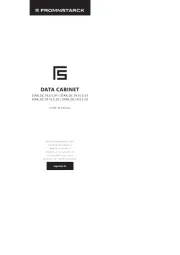
1 Augustus 2025
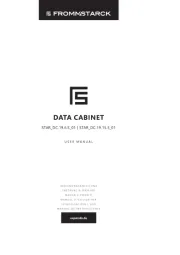
1 Augustus 2025
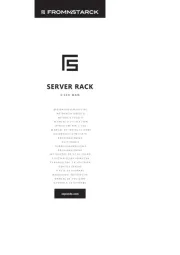
1 Augustus 2025
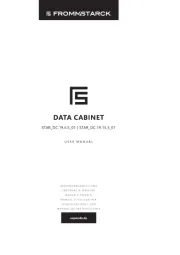
1 Augustus 2025
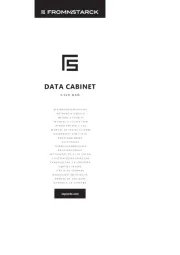
1 Augustus 2025
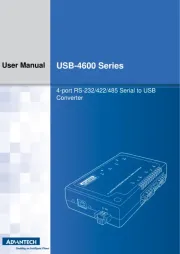
30 Juli 2025
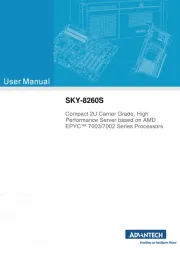
30 Juli 2025
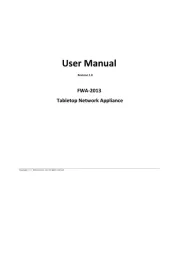
29 Juli 2025
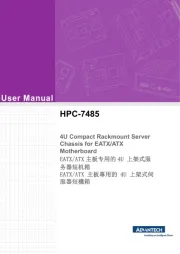
29 Juli 2025
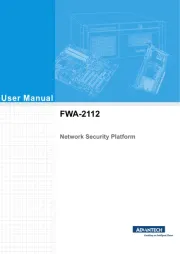
29 Juli 2025